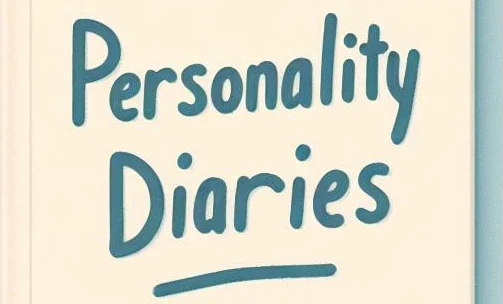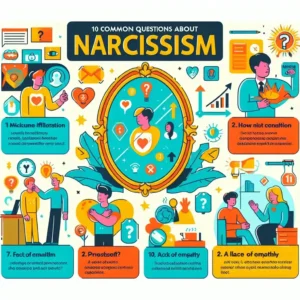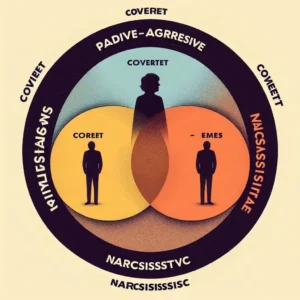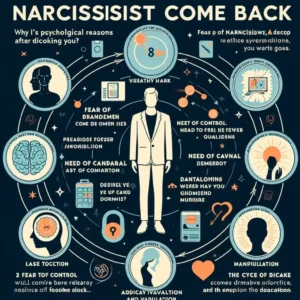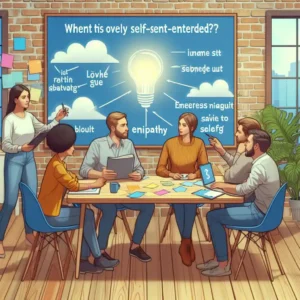You’re starting to feel it – the subtle yet unmistakable signs that the narcissist in your life is preparing to discard you. They’re suddenly “busy” when you need them, and conversations that once flowed effortlessly now feel forced and superficial.
You catch them gazing at their phone, distracted by someone or something else, and the criticism that was once veiled is now blatant and relentless.
You can’t shake the feeling that you’re walking on eggshells, never knowing what will trigger their anger or displeasure. But what’s really going on beneath the surface, and how can you prepare for the inevitable?
In a Nutshell

- They create an emotional gap, becoming distant and unresponsive to make you feel isolated and uncertain about the relationship.
- They start to prioritize their own desires over your needs, making you feel like you’re walking on eggshells to avoid triggering their withdrawal.
- Conversations become superficial, and they show little interest in your thoughts or opinions, leaving you feeling unheard and unvalued.
- They begin to make excuses to cancel plans or show up late, displaying a blatant disregard for your time and feelings.

They Start to Distance Themselves
As you begin to notice a shift in the narcissist’s behavior, they start to distance themselves from you, creating an emotional gap that’s hard to ignore.
This can manifest in subtle ways, such as giving you the cold shoulder or becoming emotionally unavailable. You may feel like you’re walking on eggshells, unsure of what’ll trigger their withdrawal. They might stop initiating conversations, cancel plans, or become increasingly busy, leaving you feeling isolated and confused.
It’s essential to recognize that this distancing is often a deliberate tactic to gain control and power in the relationship. By creating emotional distance, the narcissist can manipulate your emotions, making you feel anxious, insecure, or desperate for their attention.
Don’t be fooled – this behavior isn’t a reflection of your worth or the quality of your relationship. Instead, it’s a sign that the narcissist is preparing to discard you. As you acknowledge this emotional gap, remember that you deserve to be treated with empathy, respect, and emotional intimacy.
It’s vital to prioritize your own emotional well-being and take steps towards reclaiming your autonomy.
Sudden Lack of Interest
You’re likely to notice a sudden lack of interest in your daily life, conversations, and shared activities, as if the narcissist has mentally checked out of the relationship.
Their waning enthusiasm is palpable, and it’s as if they’re no longer invested in your connection.
This emotional unavailability can be confusing and hurtful, leaving you wondering what you’ve done wrong.
They may start to cancel plans or show up late, displaying a blatant disregard for your time and feelings.
Conversations that were once engaging and meaningful become dull and superficial, with the narcissist showing little interest in your thoughts or opinions.
Shared activities that brought you joy together now feel like a chore, with the narcissist going through the motions without any passion or excitement.
Blame Shifting and Projection
Narcissists often deflect accountability by shifting blame onto you, making you feel responsible for their own mistakes or emotional turmoil. They’re masters at reversing the script, making you doubt your own sanity and question your actions. You start to wonder if you’re the one who’s truly at fault, if you’re the one who’s causing the problems in the relationship.
But remember, you’re not crazy – you’re being manipulated.
When a narcissist projects their own flaws onto you, it’s a clever way of deflecting accountability. They’ll accuse you of doing or feeling something that they themselves are guilty of. This is a classic tactic to shift the focus away from their own wrongdoing and onto you.
Don’t fall for it. Recognize the reversed accusations for what they’re – a desperate attempt to avoid taking responsibility. You don’t have to internalize their blame or accept their false narratives. Instead, take a step back, breathe, and remind yourself of the truth.
You deserve to be treated with respect and honesty, not manipulation and deceit.
Gaslighting and Emotional Manipulation
As you navigate the complex web of gaslighting and emotional manipulation, you’re likely to encounter the narcissist’s attempts to deny reality and shift blame onto you.
These tactics can be incredibly disorienting, making it difficult for you to trust your own perceptions and emotions.
Denial of Reality
One of the most insidious tactics a narcissist employs to control and manipulate is denial of reality, a subtle yet powerful form of gaslighting that can leave you questioning your own perceptions, memories, and sanity.
This denial can be incredibly disorienting, making you feel like you’re living in an alternate reality where the truth is constantly distorted.
A narcissist might deny reality in several ways:
Rewriting history: They’ll conveniently forget or alter past events to suit their narrative, making you doubt your own memory.
Denying previous agreements: They’ll claim they never promised or agreed to something, even if you have evidence to the contrary.
Minimizing or denying their own behavior: They’ll downplay or flat-out deny their own harmful actions, making you feel like you’re overreacting.
Projecting their own flaws onto you: They’ll accuse you of doing or feeling something that they themselves are guilty of, in an attempt to shift the focus away from their own behavior.
Blame Shifting Tactics
When you confront a narcissist about their harmful behavior, they’ll often employ blame-shifting tactics to deflect accountability and turn the spotlight on you. This is a classic sign that they’re preparing to discard you, and recognizing these tactics is vital to maintain your emotional well-being.
Blame-shifting tactics are designed to make you doubt your own perceptions, memories, and sanity. The narcissist will deny their wrongdoing, twist facts, and shift faultlines to make you feel responsible for their actions.
| Tactic | Description | Example |
|---|---|---|
| Denial | Deny wrongdoing, even when confronted with evidence | ‘I didn’t do that. You’re just being paranoid.’ |
| Projection | Attribute their own behavior to you | ‘You’re the one who’s always lying, not me.’ |
| Minimization | Downplay the severity of their actions | ‘It was just a small mistake. Don’t be so sensitive.’ |
Increased Criticism and Nitpicking
You notice the narcissist is increasingly critical of your actions, appearance, and decisions, pointing out minor flaws and imperfections that were previously overlooked. This constant belittling can be incredibly draining and erode your self-confidence. Crucial to acknowledge is that this behavior isn’t about helping you improve, but rather about asserting control and power over you.
Some common signs of increased criticism and nitpicking include:
- Personal attacks: They make hurtful comments about your appearance, intelligence, or character.
- Excessive fault-finding: They constantly point out minor mistakes or flaws in your work, decisions, or actions.
- Unrealistic expectations: They set impossibly high standards and then criticize you for not meeting them.
They Find Fault in Everything
As you navigate the relationship, you may notice that the narcissist has shifted into constant criticism mode, where nothing you do is good enough.
They’ll pinpoint tiny flaws and magnify them, making you feel like you’re walking on eggshells to avoid their disapproval.
This relentless fault-finding can be exhausting and erode your self-confidence, making it essential to recognize this behavior as a sign of their preparation for something more.
Constant Criticism Mode
Their constant fault-finding in everything you do or say becomes a draining, relentless barrage that wears you down. You start to feel like you’re walking on eggshells, never knowing what’ll trigger their next criticism.
This criticism overload is a hallmark of a narcissist preparing to discard you. They use toxic feedback to erode your confidence and make you feel like you’re never good enough.
Some common signs of constant criticism mode include:
- Picking apart minor flaws: They zero in on tiny mistakes or imperfections, blowing them out of proportion to make you feel inadequate.
- Constant correction: They ‘helpfully’ point out every little thing you’re doing wrong, implying that you’re not capable of doing anything right.
- Nitpicking: They focus on trivial details, making a big deal out of something that doesn’t matter in the grand scheme of things.
Flaws Are Magnified
Fault-finding becomes an Olympic sport in the narcissist’s playbook, where every minor imperfection is magnified to monstrous proportions, ensuring that nothing you do is ever good enough.
You start to feel like you’re walking on eggshells, never knowing what’ll trigger their criticism. Your efforts, no matter how hard you try, are constantly belittled, and your accomplishments are downplayed.
As the narcissist’s dissatisfaction grows, so do the magnified insecurities and exaggerated shortcomings they attribute to you.
You begin to doubt your abilities, and your self-confidence takes a hit. They might say things like, ‘You’re not good enough,’ ‘You’re not trying hard enough,’ or ‘You’re just not capable.’
These hurtful comments are designed to erode your self-esteem, making you more dependent on them and less likely to leave the toxic relationship.
Remember, this isn’t about you; it’s about the narcissist’s need for control and power.
Don’t internalize their negativity, and try to maintain your sense of self-worth.
Pulling Away From Intimacy
You start to notice a shift in the narcissist’s behavior, as they begin to create emotional distance by canceling plans or withholding affection. This can be a subtle yet significant change, making you feel confused, unheard, and unvalued.
The narcissist may claim they’re busy or stressed, but in reality, they’re pulling away from intimacy to regain control and power in the relationship.
Some signs of intimacy avoidance include:
- Suddenly becoming ‘too tired’ or ‘not in the mood’ for physical intimacy
- Avoiding meaningful conversations or deep emotional connections
- Ignoring your emotional needs or dismissing your feelings
Flirtation With Others Begins
As the narcissist’s need for control and admiration grows, they may start to flirt with others, often in subtle but unmistakable ways, such as lingering gazes, playful teasing, or provocative body language.
You may catch them exchanging flirtatious glances with someone at a party or notice them leaning in close to a coworker during a conversation.
These social cues are designed to make you feel uncomfortable and insecure, while also feeding their ego with attention and admiration.
Pay attention to public displays of flirtation, such as posting suggestive comments or photos on social media.
The narcissist may try to pass it off as harmless banter, but deep down, they’re seeking validation and attention from others.
This behavior is a red flag, indicating that they’re preparing to move on from you and invest their energy in someone new.
Remember, you deserve better than to be treated like an afterthought.
Take these signs seriously and start preparing yourself for the possibility of being discarded.
Frequently Asked Questions
Can a Narcissist Discard Someone Without a Replacement Lined Up?
You wonder if a narcissist can discard you without a replacement. Yes, they can; it’s about their freedom and solo confidence, not needing a new supply to feel validated, and they’ll move on without hesitation.
Do Narcissists Feel Guilty After Discarding Their Partner?
You’re wondering if narcissists feel guilty after discarding their partner. Typically, they don’t experience genuine guilt, but may use guilt trips and emotional manipulation to control you, making you feel responsible for their actions.
Can a Narcissist’s Discard Be a Result of Boredom?
You might wonder if a narcissist’s discard is triggered by boredom. Yes, it’s possible; they can experience narcissist fatigue, leading to emotional withdrawal, causing them to seek novelty and discard you when they feel stagnant or unfulfilled.
How Long Does the Discard Process Typically Take?
“You’re wondering how long the discard process takes. Typically, it’s a fast-tracked emotional manipulation tactic, often unfolding within weeks or months, but it can vary depending on the narcissist’s goals and your level of emotional investment.”
Can a Narcissist’s Discard Be a Test to See if You’ll Chase Them?
You’re wondering if a narcissist’s discard is a test to see if you’ll chase them? Yes, it can be. They use discard as a manipulative game to gauge your emotional investment, testing your willingness to conform to their narcissist games of emotional manipulation.









James Green is a seasoned psychologist specializing in narcissism and other personality and relationship issues. With a passion for helping others understand and navigate their own personality traits and relationships, James shares his insights and expertise on his blog, Personality Diaries. Connect with him on Pinterest and Instagram for regular updates and insights.
